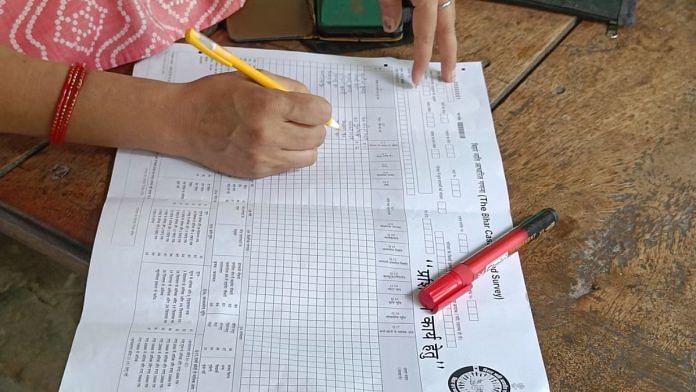As the nation soars high with Chandrayaan-3, a poignant inquiry lingers. Often brushed aside or intentionally obscured, it pertains to India’s deep-rooted caste divisions, a labyrinthine puzzle that continues to influence the contours of society. While the Supreme Court’s recent verdict has lent credence to the notion that the findings of Bihar’s caste survey – which the Patna High Court greenlighted on 1 August – can be shared unless they transgress constitutional rights, it also underscores the importance of acknowledging the potency of caste-related data. The court’s heartfelt query on privacy infringement in a state where caste is often openly known resonates deeply with all Indians’ shared experiences.
The court’s meticulous scrutiny of pleas challenging the Bihar caste survey echoes the heartbeat of a society that craves dignity and understanding through the caste census.
As we navigate a data-flooded world, the court’s empathetic approach harmonises our right to privacy with the rhythms of our communities. This compassionate deliberation reminds us that justice isn’t merely a legal term but a reflection of our collective yearning for respect and fairness. That the Supreme Court is a guardian of not just our Constitution but also our shared dreams and aspirations.
The caste census is an opportunity to embrace diversity and extend a helping hand to those who need it the most. It’s high time we recognise that reliable data isn’t just a requirement; it’s the cornerstone of progress and fairness. While the issue is pivotal for the 2024 Lok Sabha elections, its urgency extends beyond being a mere campaign tagline.
The pursuit of caste-based census in India extends beyond Bihar, with states like Telangana, Karnataka, and Odisha also aiming to unveil caste dynamics within society. Despite these efforts, uncertainties persist in achieving meaningful outcomes. The Karnataka Social and Educational Survey – popularly known as caste census in the state – initiated by the Siddaramaiah government in 2014, promised insights into reservations for Other Backward Classes (OBCs) but withheld the findings from public scrutiny. Telangana and Odisha share a common goal of understanding backward caste communities, yet the fate of their endeavours remains ambiguous.
Also read: 25000 SC/ST/OBC students have quit IITs & central universities but Modi is stuck on temples
Science matters, but not more than people
The Indian government’s zeal for conducting scientific missions such as Chandrayaan-3 contrasts sharply with its hesitance to conduct a nationwide caste census. While the former showcases the nation’s aspirations to conquer the cosmos, the latter prompts critical introspection about its willingness to address societal inequalities. This juxtaposition reveals a disturbing paradox – one where we aspire to touch the stars but falter in recognising the lived experiences of fellow citizens on the ground.
Indeed, a comprehensive caste census extends far beyond the confines of logistical intricacies. It is a clarion call for justice, an appeal for recognition, and a plea for inclusivity. By unveiling the diverse mosaic that forms the bedrock of our nation, we are bestowing due recognition upon each thread, each narrative, and each heartbeat.
Caste census won’t divide – silence will
Detractors of a caste census may argue that such a push will intensify divisions. However, a closer inspection reveals that division is not born from the recognition of reality but rather from the perpetuation of silence. The act of remaining silent, of refusing to acknowledge the intricacies of India’s social structure, leads to greater chasms. Crafting policies from the corridors of power, devoid of an intimate and empathetic understanding of ground realities, risks perpetuating harm upon communities that have been historically marginalised.
The government’s apprehensions stand in stark contrast to the vision of an India where every individual, irrespective of caste, creed, or gender, is not merely a statistic but a voice to be heard, a life to be cherished.
In essence, a nation’s greatness transcends the boundaries of technological feats or cosmic exploration. It is embodied in how compassionately it embraces diversity, in the authenticity of its commitment to justice, and in its willingness to reckon with its history. As India stands at the threshold of global leadership, it must reflect on its trajectory. True progress, unity, and prosperity are not found in the vast expanse of the cosmos but in the hearts of those who inhabit this land.
Neglecting the call for a caste census is not a unifying gesture; it is an act of erasure. Every voice, no matter how faint, deserves to be counted, acknowledged and celebrated.
The data retrieved from the lunar surface, while scientifically groundbreaking, may not hold the same relevance as the data gleaned from identities of individuals. While one reveals the mysteries of the cosmos, the other delves into real people’s lives and stories. Acknowledging the latter is not just a responsibility; it is a declaration that every voice matters in a diverse, inclusive, united India.
The author is the president of Foundation for Human Horizon, a UN-affiliated NGO that’s
leading the Anti-Caste legislation movement in the USA and an Artificial Intelligence (AI)
Research Scholar at Johns Hopkins University. Views are personal.
(Edited by Zoya Bhatti)



